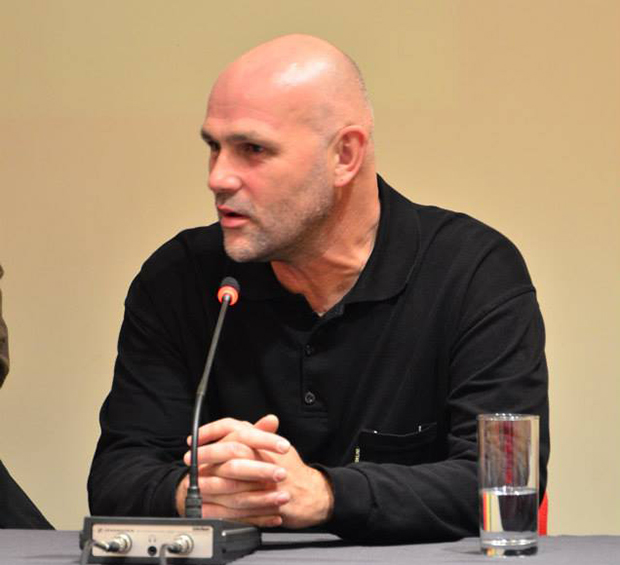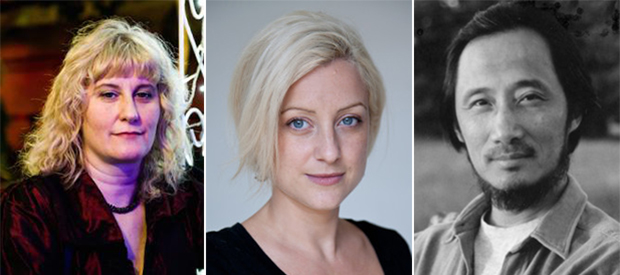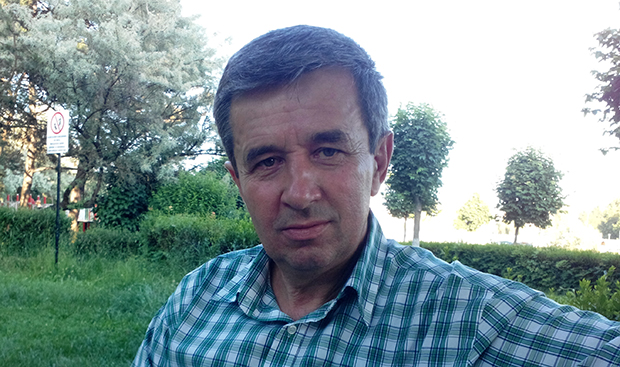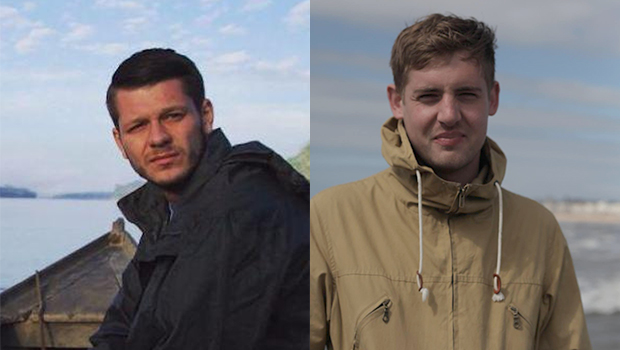31 Aug 2015 | Campaigns, Mapping Media Freedom, Statements, Turkey, Turkey Statements
Index on Censorship calls on Turkey to release two Vice journalists and a local colleague who have been formally charged with “working on behalf of a terrorist organisation”.
“Coming just days after the unjust sentencing of three Al Jazeera journalists in Egypt, these latest detentions of journalists simply for doing their jobs underlines the way in which governments everywhere can use terror legislation to prevent the media from operating,” said Index on Censorship chief executive Jodie Ginsberg.
The British journalists, Jake Hanrahan and Philip Pendlebury, were detained on Thursday with a colleague working as a fixer, Iraqi translator and journalist Mohammed Ismael Rasool, and their driver by anti-terrorism police while reporting from southeastern Turkey. On Monday, the three were formally charged and arrested. Their driver was released.
“Turkey is already one of the worst places in the world in terms of freedom of the media. We call on Turkey to release these Vice journalists and to ensure that all journalists reporting in the country can operate freely.”
Turkey has one of the world’s worse records on media freedom. Index on Censorship’s project, Mapping Media Freedom, has recorded 146 verified reports since May 2014.
28 Aug 2015 | Croatia, Mapping Media Freedom, mobile, News and features

Sasa Lekovic at a Mediacentar Sarajevo event in 2013 (Photo: Mediacentar Sarajevo)
Over the past few months, death threats, physical assaults and intimidation have plagued the Croatian media. This drastic deterioration of media freedom is recorded through Index’s Mapping Media Freedom. In the first year of the campaign — from May 2014 — there were 24 verified incidents in Croatia. Between May and August 2015, there were 14, a 75% rise in verified reports over the same period last year.
This surge in media violations was recently addressed by the Croatian Journalists’ Association (CJA) and an OSCE representative on Freedom of the Media. In a statement published on its website, the CJA highlighted impunity as one of the main issues hindering media freedom throughout the country. “The CJA once again calls on authorities to find and adequately punish those who have threatened and attacked journalists, and to also find those who potentially ordered the attacks.”
The primary concern of the CJA is the long line of unresolved cases surrounding death threats and attacks on journalists. Exactly one year since freelance journalist Domagoj Margetic was brutally beaten in front of his apartment in Zagreb — an attack the Croatian State Prosecution has characterised as attempted murder — information on the attacker and the motive remain absent. Other unresolved cases include that of Antonio Mlikota, graphic editor at the Hrvatski Tjednik newsroom who was bound and threatened with a gun, and Hrvoje Simicevic, a journalist at H-Alter who was physically assaulted. There was also a series of death threats addressed to Katarina Maric Banje, a journalist for Slobodna Dalmancija, Drago Pilsel, editor-in-chief of the Autograf website, and Sasa Lekovic, the president of the CJA, along with others that have not been made public.
In light of the influx of violence, Index spoke to Lekovic, who also received a death threat. Lekovic assumes it was issued as a result of his new role, adding that the CJA makes people who want to control the media very nervous.
Discussing the most prominent threats to media freedom, he emphasised that “journalists in Croatia are under mixed pressure from politicians, media owners, mighty tycoons and organised crime.” Lekovic says this is not particularly new, adding that for almost two decades journalists have been subjected to such threats. “Generally speaking, it isn’t easy to discern the small distinction between these actors, if any.”
Although the primary threat to media freedom is self-censorship, the lack of media integrity is also a problem. “On one hand, we have a number of media outlets, especially web portals, not following any professional standard; they are actually using media freedom against the media,” Lekovic told Index. “On the other hand, we also have some laws that are used against professionals to suspend their right to serve public interest.”
In recent years, the CJA has taken multiple steps towards fostering a more relaxed and professional environment for media workers. Among other measures, they started a project called The Center for Protection of Public Speech.
“We have lawyers who are helping journalists that are in danger, including providing pro bono support and court representation. On the other hand, the CJA is going to work on ideas that better media legislation and their implementation and ones that will improve media literacy and training,” Lekovic says. “It’s all connected and is a long-term job that will not be completed overnight.”
On deteriorating media freedom, Lekovic says the current climate is notably worse than it was two years ago. He explains that “when Croatia was applying to become an EU member, it was under pressure to fulfill EU legislative requirements within the media sphere, but once the country joined the EU, nobody cared about upholding them”.
The OSCE Representative on Freedom of the Media, Dunja Mijatovic, has called on Croatian authorities to protect critical voices and to investigate the increase in attacks on journalists. Mijatovic wrote to Croatia’s Foreign Minister, Vesna Pusic, calling for swift and transparent investigations.
“As far as I am aware, all these cases remain unresolved,” Mijatovic wrote. “Condemnation coming from the highest level of government should be a clear sign that these acts of intimidation and violence against journalists will not be tolerated.”
Lekovic added that Croatia’s upcoming parliamentary election due by February 2016 is adding to the pressure.
Mapping Media Freedom
Click on the bubbles to view reports or double-click to zoom in on specific regions. The full site can be accessed at https://mappingmediafreedom.org/
|
Related:
• Croatia: 35 reports since May 2014
This article was published at indexoncensorship.org on 28/8/2015
28 Aug 2015 | Events, Magazine, Volume 44.02 Summer 2015

Writers Meltem Arikan, Christie Watson and Ma Jian
Index on Censorship has long championed artists and writers facing threats of persecution, violence or even death.
Since 1972, Index on Censorship magazine has been a platform for original work by writers and artists highlighting stories of censorship and attacks on freedom. These short stories, poetry and plays are published in English for the first time in the magazine. Some are censored in their country of origin, others use fiction to highlight a story that is not being told.
Leading actors including Janet Suzman will read from three such authors recently published in Index on Censorship magazine: Ma Jian (China), Meltem Arikan (Turkey) and Costa Book Award-winner Christie Watson.
Followed by the authors in conversation with Index’s CEO Jodie Ginsberg.
When: Friday 25 September 2015, 7pm
Where: Nash Conservatory, Royal Botanic Gardens, Kew, TW9 3AB (map)
Tickets: Advance £15, includes entry to the gardens
Presented in partnership with:

28 Aug 2015 | Mapping Media Freedom, mobile, News and features, Romania

Vasile Luca (Photo: Zoltan Sipos)
Vasile Luca, a veteran journalist working at Radio Cluj, a Romanian public radio station based in Cluj-Napoca, was fired in May 2015 as a result of a disciplinary committee hearing.
Two months before his termination, Luca, who had been with the station for 25 years, went public with internal documents showing that a station employee, Debreczeni Hajnalka, who was also the press secretary for the head of a political party, was not actually completing any work despite an unusually high salary. Luca filed a complaint at the public prosecutor’s office and, after media coverage, Hajnalka resigned from the station. The station refused to disclose what Hajnalka’s job title had been.
At the time of the resignation, Hajnalka said her role had been to coordinate media strategies, internal communication between public stations and media monitoring. She denied that she had broken any laws or acted inappropriately.
“The case of Debreczeni Hajnalka was surely not the sole reason for my dismissal”, Luca told Index during an interview. “However, after the Debreczeni scandal, there was a lot of pressure, and multiple phone calls were made because the party she works for, the Democratic Union of Hungarians in Romania (DAHR), is very influential in the upper echelons of public radio”.
Luca had a long track record of conflicts with station management. He had previously documented illegalities and misuse of public funds at the radio station. In 2010, Luca was granted whistleblower status by Transparency International Romania after he gathered evidence that Florin Zaharescu, director of the station at the time, was embezzling funds.
Luca was subjected to his first disciplinary action in January 2015. Station management accused him of being the author of caricatures of the radio station’s directors. The images were found in the office he shared with six other journalists.
“When Ovidiu Miculescu, the general director of the Romanian Radio Broadcasting Company, was showing his solidarity with the murdered editors of Charlie Hebdo at the French Embassy, editor-in-chief at Radio Cluj, Bogdan Rosca, was trying to impose disciplinary actions against me for a couple of ironic quotes and some pictures of a bristly kitten”, the journalist said.
Along with the “bristly kitten”, the disciplinary committee also weighed a private letter the journalist had written to Vasile Dancu, a local politician and sociologist. In the letter, Luca criticised Dancu for supporting Rosca, his former student, calling him “incompetent”, “unprepared” and “resentful”.
The committee also considered a letter that Luca wrote to Miculescu that criticised Rosca’s managerial performance by citing research that showed that the radio station’s audience numbers plummeted after Rosca took over in February 2014.
As a result of the hearing, Luca’s salary was cut by 10 per cent for one month.
Immediately after the first disciplinary hearing, the editor-in-chief filed a complaint against Luca accusing him of collaborating with a privately-owned television station while he was on sick leave.
“My work ended well before I took a couple of months of sick leave. Even the disciplinary committee had to admit that I had management’s approval for a one-year collaboration with Argo TV which began in April 2013”, Luca said.
Months after the series of documentaries were shot and aired, the television station uploaded the documentary onto their website. The web publication date coincided with the period Luca was on leave. He also appeared on an Argo TV talk show during his leave.
“Luca had an appearance on television as an editor he could not account for”, Attila Szász, the head of the disciplinary committee told Index. “We did not recommend he be dismissed. The dismissal was the decision of the general director”.
According to Luca, the hearing of the disciplinary committee was unlawful because he was not granted the right to be represented by a lawyer. In a written request sent to the committee just before the hearing, Luca pointed out that the exact time and place of the hearing was not set and when they finally made the decision, his lawyer was unable to be present.
Luca said he did not receive copies of the medical records used as evidence against him and, he believes, that the process did not meet standards required by Romanian labour law. As a whistleblower, Luca said, there are legal requirements for transparency that were not met. For example, the time and location of the hearings were supposed to be publicised three days in advance and members of the press should have been granted access.
He has filed a legal complaint and a judge will decide whether he has grounds to challenge the disciplinary actions.
Mapping Media Freedom
Click on the bubbles to view reports or double-click to zoom in on specific regions. The full site can be accessed at https://mappingmediafreedom.org/
|
Related:
• Romania: Whistleblowing journalist fired by public radio station (28 May 2015)
• Romania: 52 reports since May 2014
This article was published at indexoncensorship.org on 28/8/2015





